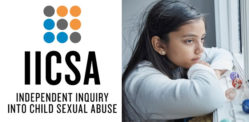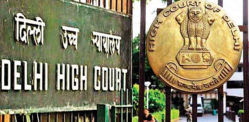"It’s always the female who is blamed"
Sexual violence and rape are taboo in themselves for many cultures and societies.
However, South Asian communities are not forthcoming to lift the lid on concerns of sexual violence against women.
Though the prevalence of rape and sexual violence against women is documented and seen in many South Asian countries, the figures for women who report violence are considerably low.
Women in South Asian communities may decide to not report rape, despite the severe repercussions and harm this will cause to their physical and mental health.
A plethora of reasons may be the reason why this is the case. For instance, if a woman experiences sexual violence in a setting that her family don’t approve of e.g. a date, or in a nightclub.
With this in mind, it becomes difficult to report sexual violence, out of fear of family discovering more details a victim may not wish to disclose.
This will ultimately lead to a woman, specifically if she is unmarried, being seen in a negative light within the South Asian community she lives in.
Women will fear being shunned from the community, outcasted by family members, and struggling with coming to terms with life after surviving rape.
Moreover, reporting a rape is thought to take a negative hit on the victim’s personal life.
A woman may be labelled as a ‘victim’ for the rest of her life.
The act of reporting rape makes it a reality outside of one’s mind, this can be a hard pill to swallow for South Asian women.
This will also impact new relationships she may wish to develop with men – the negative experiences of remembering the reality of being a rape victim can hinder her willingness to trust men openly.
According to a study by the Universities of Hull and Roehampton, sexual abuse reporting rates are lower than would have been anticipated for those living in British South Asian communities, despite being low generally.
The study shows how strong cultural norms among British South Asian communities keep instances of sexual violence from being recorded.
Authors Professor Gill, a criminologist at the University of Roehampton, and Dr Harrison, a senior lecturer in law at the University of Hull found that:
“Data suggests that incidences of sexual violence among South Asian women and children are low.
“However, our research has found that these crimes are happening – but are not being reported due to particular cultural norms that exist within these communities.”
We dive into those hurdles further:
Honour and Consequential Shame
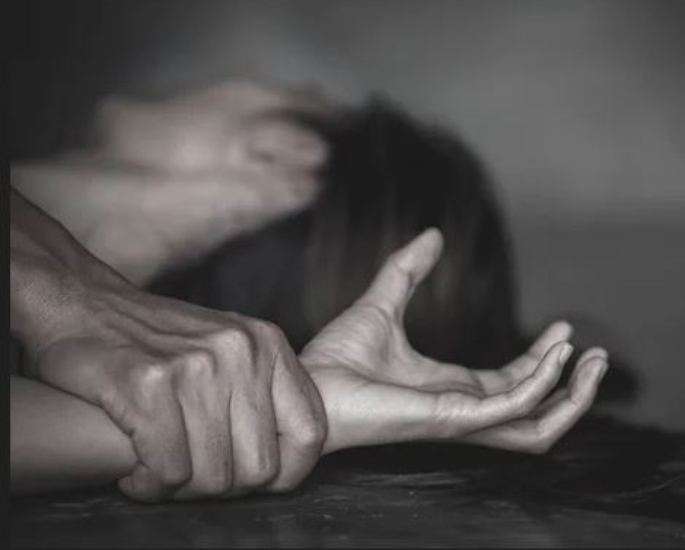
In South Asian culture, women are typically assigned a higher value of purity than in Western countries.
This is seen in British Asian women who compartmentalise their cultural upbringing, in juxtaposition to the culture they adopt in British schools and with peers.
As a result of the higher level of purity attached to the female gender, women become the bearers of a huge responsibility in maintaining this for South Asian communities outside the home.
This includes conducting oneself in a reserved manner, wearing appropriate clothing inside and outside the home, speaking modestly in language, and remaining almost unseen to the male gaze if not necessary.
Maintaining a level of purity is largely done to maintain the ‘honour’ (translated to ‘izzat’ in the majority of languages in South Asia) of the family in the cultural community South Asians attach themselves.
The level of ‘honour’ a family upholds means an elevated status in their respective communities.
Often, ‘honour’ is attached to the choices, happenings, decisions and actions of a woman.
With the phenomenon of ‘Honour Killings’ taking place for many years in South Asian countries and families, women have been at the brunt of what honour means.
For instance, If a woman loses her virginity outside of marriage, or even through sexual violence including rape, she will encounter a loss of ‘honour’.
South Asian communities across the world have gone as far as murdering women within their families if she steps outside of cultural norms and tarnishes their ‘honour’.
The stigma attached to a woman who has experienced sexual intercourse, whether willingly or not, comes with shame, being ostracised by the community, honour-based violence and in some cases, forced marriage.
Honour is therefore a major contributing factor to why reporting rape is difficult for South Asian women.
Lack of Awareness of Sexual Violence
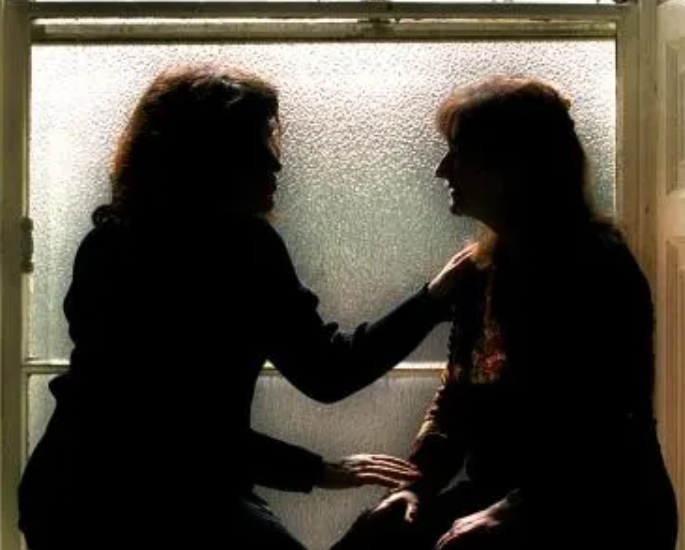
As a result of the primary socialisation experienced by many South Asian women, a lack of awareness of sexual violence occurrences is a common scenario for victims.
Victims will experience sexual violence and in many cases, will not know the realities of what is occurring being violence and sexual abuse.
High cases of child sexual violence of young girls in South Asian communities can answer and shed more light on the lack of awareness and blurred lines of sexual violence against women.
As terrifying as the thought is, Child Sexual Abuse (CSA) is prevalent in South Asian countries and families.
Early adolescence is the initial victim age for CSA in Asia, where the prevalence is still significant.
It is believed that taboo cultural elements contribute to the rise of CSA in South Asia since the majority of victims are women who already know their abuser.
Although its taboo nature means it is not an open topic of discussion, its occurrences can highlight the blurred lines women may experience as children which transfer into adult life.
Going back to the subject of honour, child sexual abuse is deemed shameful, and victims/survivors and perpetrators, are only too aware of this.
Disclosures are consequently not forthcoming, and abuse can continue for many years.
In an interview conducted by Vanisha Jassal, a senior lecturer at the University of Kent in 2020, she found that children are familiar with the honour upheld by their families:
“Sharam [shame] it’s like, you know, it’s a big thing and saying something like this [disclosing sexual abuse] would have been bad because we are from a strict family…so I’d never have said anything to anyone.”
Many victims have acknowledged that a person’s cultural standards may be profoundly ingrained, dictating their ideas and actions for as long as they can recollect.
Victims are aware of what is considered to be disgraceful to their family and community and how exposure to CSA will bring shame to the family.
Therefore, they believe it will have nothing short of catastrophic and harmful repercussions for friends and family.
The strong emphasis on honour in the culture means that a child cannot centre the pain of their horrifying experiences at the forefront of their recovery.
Instead, victims will worry and stress about what their families and others will think of them if they disclose what happened.
This idea sees young girls growing up with a skewed idea of sex and sexual violence.
Understanding the impact of childhood sexual abuse on women’s sexuality is important in determining why it is difficult for South Asian women to report rape.
A study carried out by Micheal Aaron in 2012 found that victims of CSA could be subject to hypersexuality of women in older age, or in other cases, sexual avoidance.
On either spectrum, reporting sexual violence for South Asian women becomes a hardship.
Support isn’t Tailored to South Asian Experiences

An additional barrier for women in British Asian communities is that they may find it difficult to report rape to the relevant authorities because they often feel that they cannot reach out to statutory sector services in the UK.
Services for women who are victims of rape and sexual violence are often built based on a victim vs perpetrator model.
The model of intervention and support does not account for cultural barriers, reasonings and consequences if a victim was to report their abuser.
As a result, South Asian women do not believe services in the UK can accommodate their extenuating circumstances in a culturally sensitive manner.
A researcher, aged 25 from Birmingham, who works at rape and sexual abuse charity, The Survivors Trust, revealed that often women of South Asian background only reach out for a listening ear.
She said:
“From my research, South Asian women typically don’t want us to act on the information they share or flag up authorities they can inform for justice.”
“They just want someone who understands to listen.
“It’s like they already know nothing will change as a result of the call, but I guess it’s a comfort knowing they can share confidential information without being judged.”
When asked why reporting rape is difficult for South Asian women in particular, she answered:
“I’m not in their shoes, I genuinely believe it’s a case-by-case situation.
“We cannot generalise all South Asian women because it prevents victims from standing up for themselves.”
The researcher continued:
“The more women see that it is acceptable to be open about sexual violence they have faced, the more they will be inspired to come forward and share their stories.”
Despite the plethora of services, advice, and guidance available to victims of rape and sexual violence, a language barrier could mean all resources are wasteful.
Women from South Asian backgrounds who live in Britain, but do not speak English, may experience sexual violence in the form of marital rape, sexual violence from a family member or being taken advantage of.
As a result, women who don’t speak English will find it difficult to report sexual violence as they may not be taken seriously or understood to the full extent.
These women have often grown up in South Asia where a woman’s silence is almost assumed as a part of her identity – especially when it comes to taboo subjects such as rape.
Therefore, a lack of being able to express themselves in a ‘free country’ such as the West, still holds them back from exercising their right to seek justice from their abusers.
Degrading Practices of Rape Victims
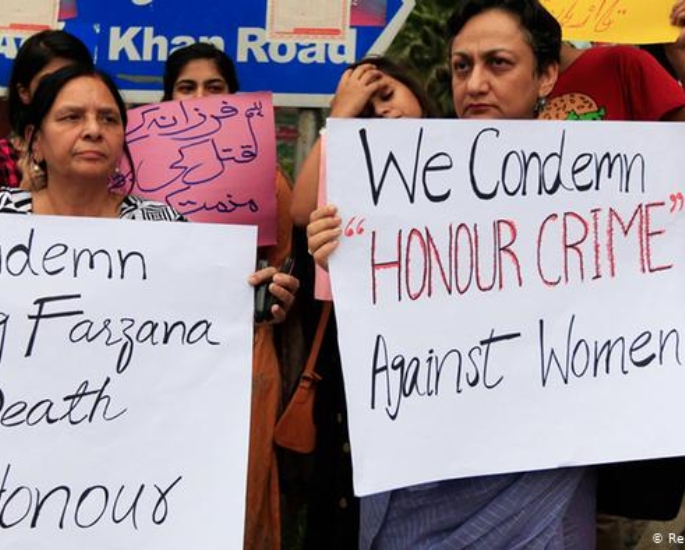
At this stage a woman in South Asia gains the courage to report the sexual violence she has faced whilst, in a vulnerable state, she would expect her unfortunate circumstances to be dealt with sensitively.
However, this is not the case in India.
In several South Asian nations, the traumatic and unscientific two-finger test is still employed as part of the physical examination.
In this procedure, two fingers are inserted into the rape victim’s vagina by a medical professional to “test the flexibility of the vagina” and see if the hymen is ruptured.
The test is frequently used to label rape victims as being “habituated to sex.”
The medical proof of prior sexual encounters is used to refute the rape claim for the following reasons:
- Either to indicate that the victim lied about the rape.
- To imply that the rape was not damaging.
- To imply that the victim is morally objectionable and hence not entitled to justice.
Guidelines for the care of survivors/victims of sexual abuse were released by India’s Ministry of Health in March 2014.
According to the guidelines, “per-vaginum examination, generally known as the “two-finger test,” must not be performed to prove rape or sexual violence, and the size of the vaginal entrance does not influence a case of sexual assault.
Only adult women who are medically recommended may undergo a “per-vaginum” examination.
However, neither the Guidelines nor their enforcement has been applied equally throughout India, and any violations are not supported by a legal response.
This intrusive and psychologically damaging procedure is a big indication of why women would deal with the consequences of their abuse without alerting the authorities.
As part of their research of discovering the reasons for the low reporting rape rate in British South Asian women, Dr Karen Harrison found that on the subject of honour and sexual abuse for South Asian women in Britain:
“They think it’s not going to be just the family they have to deal with but the whole community, and they’ll feel repercussions from [that].
“A lot of times…the male doesn’t take on any blame or any responsibility for their actions. It’s always the female who is blamed for whatever happens.”
One of the victim-survivors, aged 46, interviewed as part of the research said:
“It’s all conditional love in Asian families and that’s what honour is all about – there is no unconditional love in Asian families.
Honour is more important to them than their own child’s happiness.
It’s down to the woman to keep her dignity and self-respect. The concept of honour is about honouring the family and the community at the cost of the individual.”
Research shows that there is a continuing need for culturally sympathetic policies and welcome authorities to take action and factor in extenuating circumstances for rape victims from all backgrounds.
It has stressed that support needs to go still further and the UK should adopt strategies for British South Asian populations including:
- Compulsory education for school children of both genders on healthy relationships – beginning with age-appropriate learning in primary schools and continuing throughout a person’s education.
- The introduction of community workers and peer support – who attach themselves to the venues and groups women are ‘allowed’ to go to – to help bridge the gap between victims and support agencies.
- Novel approaches to awareness-raising such as community-led debates.
- The introduction of more ‘safe’ venues children’s centres, women’s centres or drop-in centres where several charities and services are all housed under one roof,
Dr Karen Harrison said:
“If sexual abuse in British South Asian communities is to be eradicated rather than covered up, it is important to…
“A) identify ways to help victims overcome barriers and b) understand what practitioners need to support this population.
“In addition; we can no longer claim that some groups of people are hard to reach when mechanisms and strategies are indicating that this idea is simply not true.
“We have uncovered several successful initiatives operating in these communities that raise awareness of what constitutes sexual violence and encourage women and children to report crimes in a way they feel safe.
“Unfortunately, however, much of this best practice is offered on a localised basis.”
She concluded:
“It is shameful if support services exist but women cannot access them simply because of physical infrastructure.
“We would like to see more innovative and effective approaches to outreach and awareness-raising initiatives so that genuine change can be achieved.
“The protection of women and children from all types of abuse should not be a postcode lottery and we fervently hope that politicians and policymakers will use our research as a first step towards achieving this ambition.”
It is important to emphasise the importance for women to report sexual violence and rape.
Despite the challenges outlined, whilst understanding a variety of underlying circumstances, victims deserve to have their experiences brought to justice.
In light of modern movements such as #MeToo, women have shared their experiences on a local case basis.
The Delhi rape case of 2012 commonly known as the Nirbhaya case, generated widespread national and international coverage and was widely condemned, both in India and abroad.
Subsequently, public protests against the state and central governments for failing to provide adequate security for women took place in New Delhi.
Large-scale movements and open conversations have shown and given other women the comfort of also sharing their sexual abuse encounters in hope of seeking justice and finding mental clarity in the negative situation.
We can only hope that South Asian women find the strength, courage and confidence to put their needs first and share injustices of rape and sexual violence with lawmakers and relevant authority figures.
Not only will more South Asian women reporting rape and sexual violence benefit them in the long run, but recording data in the form of statistics holds perpetrators to account to prevent future injustice.























































